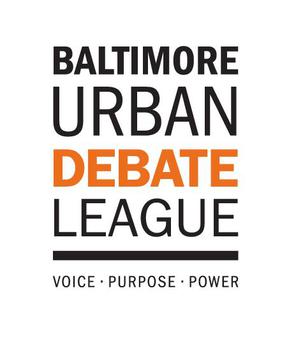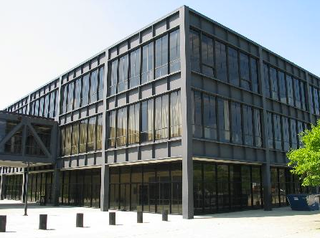Policy debate is an American form of debate competition in which teams of two usually advocate for and against a resolution that typically calls for policy change by the United States federal government. It is also referred to as cross-examination debate because of the 3-minute questioning period following each constructive speech. Evidence presentation is a crucial part of policy debate. The main argument being debated during a round is to change or not change the status quo. When a team explains why their solvency is greater than the opposition's, they compare advantages. One team’s job is to argue that the resolution— the statement that we should make some specific change to a national or international problem —is a good idea. Affirmative teams generally present a plan as a proposal for implementation of the resolution. On the other hand, the Negative teams present arguments against the implementation of the resolution. In a single round of debate competition, each person gives two speeches. The first speech each person gives is called a “constructive” speech, because it is the speech when the first person of the team speaks positively, presenting the team's main idea without rebuttals that have not occurred, presents the basic arguments they will make throughout the debate. The second speech is called a “rebuttal”, because this is the speech where each person tries to rebut the arguments made by the other team, while using their own arguments to try to persuade the judge to vote for their team. The Affirmative has to persuade the judge to vote for the resolution, while the Negative has to persuade the judge the Negative's position is a better idea.
Public forum debate is a form of competitive debate which centers on current events and relies on both logic and evidence to construct arguments. It is primarily competed by middle and high school students, but college teams exist as well. Invented in the US, Public Forum is one of the most prominent American debate events, alongside policy debate and Lincoln-Douglas debate; it is also practiced in China and India, and has been recently introduced to Romania. Individuals give short speeches that are interspersed with 3 minute "Crossfire" sections, questions and answers between opposed debaters. The winner is determined by a judge who also serves as a referee. The debate centers on advocating or rejecting a position, "resolve", or "resolution", which is usually a proposal of a potential solution to a current events issue. Public Forum is designed to be accessible to the average citizen.

Westminster Senior High School is a high school located in Westminster, Maryland, United States.

Rufus King International High School, or Rufus King, is a public magnet high school located on the north side of Milwaukee, Wisconsin, part of the Milwaukee Public Schools district. The school is ranked the 1,658th best public high school in the country by U.S. News & World Report, making it the 42nd best performing public high school in the state of Wisconsin. The school offers the International Baccalaureate curriculum.
There are several venues of competition for policy debate in the United States.
The Barkley Forum is the intercollegiate debate and forensics organization at Emory University. It is named after Emory alumnus and former United States Vice-President Alben W. Barkley. Debate at Emory began in the 1830s. The literary societies that practiced literary and forensic arts gave way to an intercollegiate debating society in the 1920s.

The Baltimore Urban Debate League, is an American, non profit, urban debate league that aims to educate and mentor inner city middle school and high school students in the Baltimore, Maryland area.
The Bancroft Literary Association and the Carrollton-Wight Literary Society are two competitive forensic societies at the Baltimore City College and are the formal names for the school's speech and debates teams. Founded in 1876 and 1878 respectively, the Bancroft and Carrollton-Wight Societies are the oldest literary societies at a public high school in the United States. Historically, the two societies competed mainly between themselves. The rivalry culminated each year with an annual debate. In the 20th century, the societies began to compete with other secondary schools and some universities. At the time, the teams' most notable rival was Baltimore Polytechnic Institute, City College's chief rival in sports and academics. The Bancroft and Carrollton-Wight Societies disbanded for a time in the 1980s and early-1990s, but were revived in the late-1990s. Baltimore City College is a charter member of the Chesapeake Region of the National Forensics League and the National Catholic Forensic League, and is founding member of the Baltimore Catholic Forensic League and the Baltimore Urban Debate League.

The IMPACT Coalition is an urban debate league (UDL) based in the New York metropolitan area. It organises debating competitions and provides supporting services.

Whitney M. Young Magnet High School is a public 4–year magnet high school and middle school located in the Near West Side neighborhood of Chicago, Illinois. Opened on September 3, 1975, Young was the city's first public magnet high school.

The William Pitt Debating Union (WPDU) is the debating society of the University of Pittsburgh. Falling under the auspices of the Department of Communication, the WPDU is a co-curricular program and hub for a wide range of debating activities, including intercollegiate policy debate, public debate, and debate outreach. One of the oldest collegiate debating organizations in the nation, the WPDU grew from the University’s Division of Public Speaking in 1912. Throughout its history, the WPDU has regularly participated in national and international competitions, including capturing the affirmative team two-man debate national championship at the 1947 Grand National Forensic Tournament, and appearing 45 times at the National Debate Tournament, where it captured the 1981 national championship. The WPDU is located in the heart Pitt's campus and is housed on the fourteenth floor of the Cathedral of Learning. The WPDU also offers scholarships to top team participants.
The Rhode Island Urban Debate League (RIUDL) is an American urban debate league located in Rhode Island. It operates as a community partnership program between Brown University's Howard R. Swearer Center for Public Service and the Rhode Island high schools with which RIUDL is affiliated.
Allegra "Happy" Haynes is a Denver politician and consultant who formerly served on the Denver City Council and was an aide to two mayors.
The LAMDL, a non-profit organization, is devoted to bringing debate to urban high schools in the Los Angeles area. The LAMDL is part of a “public-private” partnership, relying on financial contributions from private sources and collaboration with the Los Angeles Unified School District (“LAUSD”). LAMDL also works closely with the University of Southern California. Currently, ten high schools are active in the LAMDL. The LAMDL is associated with the National Association for Urban Debate Leagues (“NAUDL”).

The National Association for Urban Debate Leagues (NAUDL) is a Chicago-based non-profit organization that prepares low income students of color to succeed in college and in their future careers by organizing and supporting competitive debate teams in urban public schools across the country. The NAUDL engages in advocacy and fundraising on behalf of Urban Debate Leagues (UDLs), which operate at 500 high schools and middle schools in 19 cities across the U.S., including Atlanta, Baltimore, Chicago, Dallas, D.C., New York, and Los Angeles. Debate is believed to improve critical thinking skills and educational outcomes.
Revere High School is a public four-year high school in Revere, Massachusetts, United States, operated by the Revere Public Schools system, and serving about 1,500 students annually. High school students from the district attend either Revere High, Seacoast Alternative School, or the Northeast Metropolitan Regional Vocational High School in Wakefield.

The Initiative on Cities (IOC or IoC) is an interdisciplinary center at Boston University. It serves as a hub for urban research and experiential learning, and engages with urban leaders, policymakers, academics, communities, and students from around the world to work toward sustainable, just, and inclusive urban transformation.
The Urban Design Lab (UDL) is an interdisciplinary research unit of Columbia University’s Earth Institute in New York City. Established in 2005, it advances design-based solutions to issues in sustainable development and global urbanization. Richard Plunz, founder of the UDL, currently directs the program.
Educational inequality has existed in the Southeast Michigan area of the United States since the birth of institutional, urban schooling in the US. Inequality between lower and higher class districts have perpetuated divisions in educational opportunities and outcomes between Michigan communities, especially areas in and around Detroit, the state's largest city. According to a report by the Kerner Commission from 1967, "spending per pupil in Detroit suburbs was 27% greater than in the city and that spending since World War II had risen more in the suburbs than in the city. ." More recently, the economic decline of Detroit culminating in the 2013 Detroit bankruptcy has aggravated the educational tensions.

Competitive debate, also known as forensics or speech and debate, is an activity in which two or more people take positions on an issue and are judged on how well they defend those positions. The activity has been present in academic spaces in the United States since the colonial period. The practice, an import from British education, began as in-class exercises in which students would present arguments to their classmates about the nature of rhetoric. Over time, the nature of those conversations began to shift towards philosophical questions and current events, with Yale University being the first to allow students to defend any position on a topic they believed in. In the late nineteenth century, student-led literary societies began to compete with each other academically and often engaged in debates against each other. In 1906, the first intercollegiate debate league, Delta Sigma Rho, was formed, followed by several others. Competitive debate expanded to the secondary school level in 1920 with the founding of the National Speech and Debate Association, which grew to over 300,000 members by 1969. Technological advances such as the accessibility of personal computers in the 1990s and 2000s has led to debate cases becoming more complex and to evidence being more accessible. Competitors and coaches have made efforts to reduce discrimination in the debate community by introducing new arguments and recruiting debaters from underprivileged communities.








